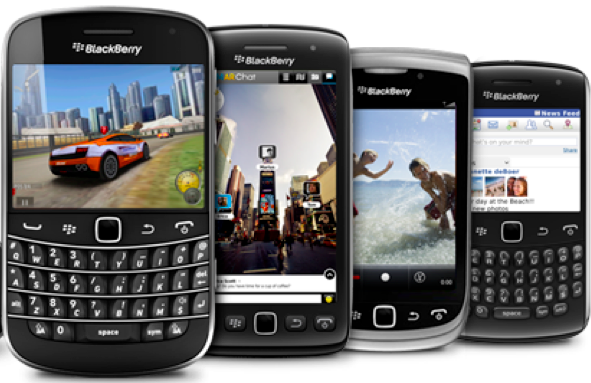
BlackBerry may have outdone Apple in regards to its frothing fan base.
Two seemingly disparate events are happening this week: Wednesday?s long-awaited launch of BlackBerry 10 and Sunday?s Super Bowl. But believe it or not, they?re not that different. Both inspire fanatical devotion from legions of fans, some of which border on madness.
Anyone who has written anything on Research In Motion during the past little while is surely familiar with the attacks that inevitably follow. It doesn?t matter how scathing or glowing said piece was, the BlackBerry fanboys have been out with a vengeance once reserved only for Apple?s own iCult.
Even positive articles aren?t spared their wrath. My?largely favourable review?recently of the pre-release BlackBerry 10, for example, provoked one commenter on Twitter to affirm that I was ?pulling things out of my ass.? Really, there?s no pleasing these people.
To be fair, it?s not just RIM that inspires such loyalty/lunacy. I?ve seen it particularly bad from the Apple and Nintendo faithful, but everyone?s got them ? Microsoft, Google even Palm back in the day.
It got me wondering: what inspires such fierce brand loyalty? Surely there?s some sort of scientific reason behind it?
It turns out there is, according to psychologists at the University of Illinois. In a 2011 study, researchers found that fanboys often?confuse their own self image?with that of brands. As Ars Technica put it, ?You may think you?re defending your favorite platform because it?s?just that good. But? you may instead be defending yourself because you view criticisms of your favorite brand as a threat to your self image.?
In other words, if you pick a brand and it does poorly, you might get prickly about it because you?re effectively defending?your choice.
The researchers performed two experiments, one on a group of 30 women and another on a group of 170 undergrads, and divided them into a set with high self-brand connections and those with low SBC. Those with high SBC tended to suffer hits to their self esteem when their brands didn?t do well or were criticized. Those with low SBC? well, they were perfectly fine. As the study puts it:
Because the brand is seen as a part of the self by virtue of being intimately tied to the self, failure on the part of the brand is experienced as a personal failure. Therefore, in an effort to maintain a positive self-view, high SBC individuals react defensively to brand failure by evaluating the brand favorably despite its poor performance.
This isn?t so different from sports, which similarly cause individuals to associate their identities as part of a larger whole. A recent story on the NHL lockout?touched on this issue, with University of Illinois psychologist Edward Hirt pointing out the similarities.
?The groups that we belong to really signify to a great extent some large components of our own personal identity,? he said. ?Let?s take a Yankee fan. That may be one of the first things that somebody from (New York) says to somebody; ?I?m a Yankee fan.? That?s a key part of their identity.?
It seems there?s no easy way to bring someone out of fanboy-ism and into the realm of sanity, where their identity isn?t defined by a product or team. It has to happen naturally. I remember my own experience vividly, back in high school, when my favourite band Motley Crue kicked out its lead singer. It was the worst betrayal imaginable, but it taught me not to get emotionally invested in entities that exist only to take my money.
Most fanboys and sports fanatics will eventually encounter their own shocks to the system. Either a company betrays them or goes belly up or a sports team moves to another city or trades its best player. Until then, we?ll all have to keep enduring their obnoxious and often sociopathic behaviour.
Source: http://www2.macleans.ca/2013/01/30/rim-fanboys-and-football-fans-not-so-different/
new nfl uniforms easter derbyshire the matrix oceans 11 ferris state hockey mary poppins
No comments:
Post a Comment
Note: Only a member of this blog may post a comment.